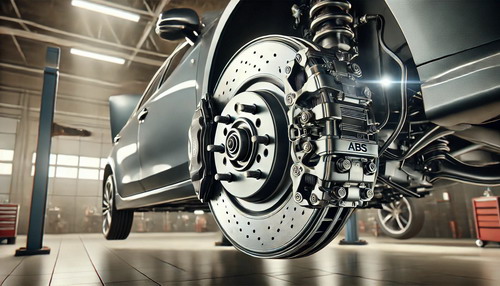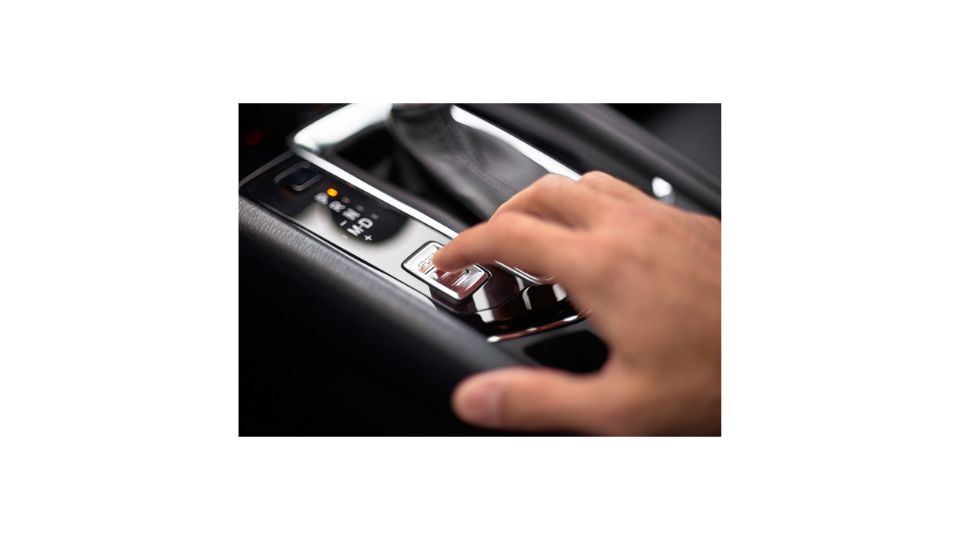The Toyota Corolla has long been a symbol of reliability and efficiency, beloved by drivers worldwide for its practical design, fuel efficiency, and affordability. However, like any vehicle, it is not without its issues. One of the more critical components that can occasionally experience problems is the Anti-lock Braking System (ABS). Understanding what the ABS does, why it’s crucial, and how to identify when it’s malfunctioning is essential for every Corolla owner.
The ABS is an advanced safety feature designed to prevent the wheels from locking up during hard braking, allowing the driver to maintain steering control. This system is particularly vital in adverse conditions, such as on wet or icy roads, where the risk of skidding is high. The ABS works by automatically modulating the brake pressure during an emergency stop, ensuring that the wheels don’t lock and the vehicle remains steerable.
In essence, the ABS is the guardian angel of your braking system, constantly working behind the scenes to keep you safe. However, like all mechanical systems, it can experience malfunctions, which may compromise its effectiveness. Recognizing the signs of ABS issues and knowing what to do when they arise can make a significant difference in maintaining your vehicle’s safety and performance.
Common Symptoms of Toyota Corolla ABS System Malfunctions
While the ABS is designed to be a robust and reliable system, it can develop issues over time due to wear and tear, electronic failures, or other factors. Identifying the symptoms of ABS malfunctions early can prevent more severe problems down the road. Here are some common signs that your Toyota Corolla’s ABS system might be in trouble.
How to Identify ABS Warning Light Issues in Toyota Corolla
One of the most obvious signs of an ABS problem is the appearance of the ABS warning light on your dashboard. This light is designed to alert you to potential issues with the system. When you start your Corolla, all the warning lights, including the ABS light, should briefly illuminate as part of a system check. If the ABS light stays on after the initial check or comes on while driving, it indicates that the ABS has detected a problem.
There are several reasons why the ABS light might come on. It could be something as simple as a blown fuse or a disconnected wire. However, it could also signal more serious issues, such as a malfunctioning sensor or a problem with the ABS control module. Ignoring the ABS warning light is not advisable, as it may mean your braking system is compromised.
Signs of a Failing ABS Sensor in Toyota Corolla
The ABS relies on sensors located at each wheel to monitor the speed of the wheels and detect any potential lock-up. These sensors send data to the ABS control module, which then adjusts the brake pressure to prevent skidding. If one of these sensors fails, the ABS may not function correctly.
Symptoms of a failing ABS sensor include unusual noises during braking, longer stopping distances, and, of course, the ABS warning light. In some cases, you might notice the brake pedal feels different – it could be softer or might pulsate when pressed. This pulsation is usually a sign that the ABS is engaging, but if it happens under normal braking conditions, it could indicate a sensor issue.
A faulty ABS sensor can be caused by dirt or debris blocking the sensor, damage to the sensor itself, or issues with the wiring. If you suspect that an ABS sensor is failing, it’s crucial to get it checked and replaced if necessary. Driving with a faulty sensor can reduce the effectiveness of your ABS, especially in emergency situations.
Toyota Corolla Braking System Problems: What to Watch Out For
Beyond the ABS warning light and sensor issues, there are other signs that could indicate your Corolla’s braking system is experiencing problems. For instance, if you notice your brakes are less responsive or you hear grinding or squealing noises when you brake, these could be signs of more extensive braking system issues that might also affect the ABS.
Brake fluid leaks are another common problem. If you notice a puddle of fluid under your car near the wheels, this could indicate a leak in the brake lines or ABS system. Brake fluid is crucial for the proper operation of both the ABS and the overall braking system, and a leak can lead to a decrease in braking power.
In some cases, ABS malfunctions can cause the brakes to lock up during normal driving conditions, not just in emergencies. This is particularly dangerous as it can lead to skidding or loss of control, especially at higher speeds or in poor weather conditions. If you experience this, it’s a clear sign that something is wrong with the ABS, and immediate attention is required.
Another potential issue could be with the ABS pump or hydraulic control unit. These components work together to apply and release the brake pressure to prevent wheel lock-up. If either of these components fails, you might notice that the brakes don’t seem to engage as quickly or as forcefully as they should, or you might hear strange noises coming from the brake area.
Understanding these common symptoms can help you take action before a minor ABS issue turns into a major safety concern. Regular maintenance and being alert to these signs will ensure that your Toyota Corolla remains safe and reliable on the road.
In these first two sections, we’ve explored the importance of the ABS system in the Toyota Corolla and discussed the common symptoms that can indicate a malfunction. By being aware of these signs and addressing them promptly, you can maintain your vehicle’s safety and avoid costly repairs down the line. In the next sections, we’ll delve into diagnosing ABS problems and exploring potential fixes to keep your Corolla’s braking system in top condition.
Diagnosing ABS System Problems in Toyota Corolla
When it comes to maintaining the safety of your Toyota Corolla, diagnosing potential ABS system problems early is crucial. The Anti-lock Braking System (ABS) is a complex network of sensors, controllers, and hydraulic components, all working together to prevent wheel lock-up and maintain steering control during emergency braking. Diagnosing issues with this system can be daunting, but understanding the process can save you time, money, and, most importantly, ensure your vehicle remains safe to drive.
How to Diagnose ABS System Issues in Toyota Corolla
Diagnosing ABS problems in your Toyota Corolla typically begins with observing the warning lights on your dashboard. As mentioned earlier, the ABS warning light is the most immediate indicator that something might be wrong. If this light stays on after the vehicle has started or comes on while driving, it’s time to take action.
The first step in diagnosing ABS issues is to perform a visual inspection. Check the ABS fuse, located in the fuse box, to ensure it hasn’t blown. This is a common and easily fixable issue. Next, inspect the ABS sensors at each wheel for any signs of damage or disconnection. Sometimes, dirt or debris can obstruct the sensors, leading to malfunctioning readings. Cleaning the sensors and ensuring they are securely connected can sometimes resolve the issue.
If these initial checks don’t reveal the problem, the next step is to use an OBD-II scanner with ABS capabilities. This tool allows you to read the Diagnostic Trouble Codes (DTCs) stored in the vehicle’s computer. These codes provide specific information about what might be causing the ABS issue, such as a faulty sensor, a hydraulic pump failure, or a problem with the ABS control module.
After retrieving the DTCs, it’s essential to cross-reference the codes with the vehicle’s service manual or an online database to understand what each code means. This will guide you in identifying the exact component that needs attention.
Toyota Corolla ABS Diagnostic Trouble Codes (DTCs)
Understanding the Diagnostic Trouble Codes (DTCs) associated with the ABS system is crucial for accurate diagnosis and repair. The DTCs are alphanumeric codes that correspond to specific issues within the ABS system. Here are some common DTCs you might encounter when diagnosing ABS problems in a Toyota Corolla:
- C0210: Rear Speed Sensor Right Circuit – This code indicates a problem with the right rear wheel speed sensor circuit. It could be due to a damaged sensor, faulty wiring, or a poor connection.
- C0273: Pressure Control Solenoid “C” Circuit Electrical – This code suggests an issue with the pressure control solenoid in the ABS system, which could affect the modulation of brake pressure.
- C1241: Low Battery Positive Voltage – This code points to low voltage reaching the ABS system, which could be due to a failing battery or alternator.
- C1252: Hydro-booster Pump Motor Circuit – This code indicates a problem with the ABS pump motor circuit, which is responsible for generating the hydraulic pressure needed for ABS operation.
Each of these codes requires a different diagnostic approach and repair strategy. For instance, a C0210 code might involve checking and possibly replacing the rear wheel speed sensor, while a C1252 code could mean inspecting the ABS pump motor and its associated wiring.
In some cases, multiple codes may be triggered simultaneously, which can complicate diagnosis. It’s essential to address each code systematically, starting with the most critical or the code that seems most relevant to the symptoms you’re experiencing.
When to Seek Professional Help for Toyota Corolla ABS Issues
While some ABS issues can be diagnosed and even fixed by a competent DIYer, there are times when professional help is necessary. If you’re unable to identify the cause of the ABS warning light using the steps mentioned above, or if the DTCs point to more complex issues like a failing ABS control module or hydraulic unit, it’s best to consult a professional mechanic.
Professional mechanics have access to more advanced diagnostic tools and have the experience needed to troubleshoot and repair complex ABS issues. They can perform in-depth tests that go beyond the basic OBD-II scan, such as testing the ABS control module with specialized equipment or inspecting the hydraulic system for internal leaks or blockages.
Additionally, some ABS repairs require specialized tools and knowledge that go beyond the average DIYer’s capabilities. For example, replacing the ABS control module or hydraulic unit often involves bleeding the brake system, a task that requires precision and experience to ensure the braking system works correctly afterward.
Fixing ABS System Malfunctions in Toyota Corolla
Once you’ve diagnosed the issue with your Toyota Corolla’s ABS system, the next step is to fix it. Depending on the problem, repairs can range from simple DIY fixes to more complex repairs requiring professional intervention. In this section, we’ll explore the various approaches to fixing ABS issues, from easy fixes you can do at home to more involved repairs.
DIY Fixes for Toyota Corolla ABS System Problems
For minor ABS issues, there are several fixes that you can perform yourself without needing specialized tools or professional assistance. Here are some common DIY fixes:
- Replacing a Blown Fuse: If the ABS warning light is on due to a blown fuse, replacing the fuse is a quick and easy fix. Simply locate the fuse box, find the ABS fuse (usually labeled), and replace it with a fuse of the same rating.
- Cleaning ABS Sensors: Dirt and debris can cause ABS sensors to malfunction. If your ABS warning light is on, inspect the sensors at each wheel. Cleaning the sensors with a soft cloth or brush and ensuring they’re properly connected can often resolve the issue.
- Replacing a Faulty ABS Sensor: If an ABS sensor is damaged, replacing it is a straightforward task. After purchasing the correct sensor for your Corolla, you can remove the old sensor and install the new one using basic hand tools.
While these fixes are relatively simple, they can effectively resolve many common ABS issues and restore your vehicle’s braking performance.
Toyota Corolla ABS System Replacement Costs
If your ABS issue is more severe, such as a failing ABS control module or hydraulic pump, you may need to consider replacement. The cost of replacing ABS components can vary widely depending on the specific part and whether you do it yourself or have a professional handle the repair.
- ABS Sensor Replacement: Replacing an ABS sensor typically costs between $100 and $300, depending on the sensor’s location and the make and model of your Corolla. Labor costs may add another $50 to $100 if done professionally.
- ABS Control Module Replacement: The ABS control module is one of the more expensive components to replace, with costs ranging from $600 to $1,200, including labor. This repair is usually best left to professionals due to the complexity involved.
- Hydraulic Pump Replacement: Replacing the ABS hydraulic pump can cost between $500 and $1,000. The pump is a critical component, and its replacement often requires bleeding the brake system, which should be done by a qualified mechanic.
When considering these costs, it’s important to weigh the safety benefits of having a fully functional ABS system against the expense. In many cases, investing in professional repairs can save you money in the long run by preventing further damage and ensuring your vehicle’s safety.
Best Practices for Maintaining Your Toyota Corolla’s ABS System
Preventing ABS issues before they start is always preferable to dealing with malfunctions after they occur. Here are some best practices to keep your Corolla’s ABS system in top condition:
- Regular Maintenance: Schedule regular maintenance checks for your braking system, including the ABS, with a trusted mechanic. This will help catch potential issues early before they become serious problems.
- Keep Sensors Clean: Ensure that your ABS sensors are kept clean and free of debris. Regularly inspect the sensors for dirt, grime, or damage, especially if you frequently drive on rough or dusty roads.
- Monitor Brake Fluid Levels: The ABS relies on brake fluid to function correctly. Regularly check your brake fluid levels and top up as needed. Low brake fluid can lead to reduced braking performance and ABS malfunctions.
- Respond to Warning Lights Promptly: If your ABS warning light comes on, don’t ignore it. Investigate the cause as soon as possible, even if the vehicle seems to be braking normally.
By following these best practices, you can help ensure that your Toyota Corolla’s ABS system remains reliable and effective, providing you with the safety and control you need on the road.
Toyota Corolla ABS System Recalls and Safety Notices
Toyota has a strong reputation for quality and safety, but even the best vehicles can experience issues that lead to recalls or safety notices. Understanding how these recalls and notices work and how they might affect your vehicle is essential for keeping your Corolla safe and roadworthy.
Toyota Corolla ABS System Recalls: What You Need to Know
Automotive recalls are issued when a manufacturer or the National Highway Traffic Safety Administration (NHTSA) identifies a defect that affects vehicle safety. While Toyota is known for its reliability, there have been instances where the ABS system in certain Corolla models has been subject to recalls.
Recalls related to the ABS system are typically issued when a specific defect is identified that could affect the system’s performance, potentially leading to a safety hazard. For example, a recall might be issued if it’s discovered that a batch of ABS control modules was improperly manufactured, leading to potential failure under certain conditions.
If your Corolla is subject to a recall, Toyota will notify you directly, typically via mail. The notification will include details about the defect, the risk it poses, and instructions on how to get the issue resolved. Most importantly, recall repairs are free of charge, as they are covered by the manufacturer.
To check if your Toyota Corolla is subject to any recalls, you can visit the NHTSA’s website and enter your vehicle identification number (VIN). This will provide you with a detailed list of any outstanding recalls, allowing you to take action promptly.
Toyota Corolla Safety Notices and ABS System Updates
In addition to recalls, Toyota may issue safety notices or service bulletins related to the ABS system. These notices are typically less urgent than recalls but still important for maintaining your vehicle’s performance and safety.
Safety notices might be issued for issues that don’t necessarily pose an immediate risk but could affect the ABS system’s long-term reliability. For instance, a notice might recommend a software update for the ABS control module to improve performance or address a minor bug.
Service bulletins, on the other hand, are technical documents sent to dealerships that provide instructions for diagnosing and repairing common issues reported by customers. While not recalls, these bulletins often lead to proactive repairs during routine maintenance visits, helping to prevent problems before they become serious.
In these sections, we’ve covered the critical steps in diagnosing and fixing ABS system malfunctions in your Toyota Corolla. By understanding how to identify issues, when to seek professional help, and how to maintain your ABS system, you can ensure that your vehicle remains safe and reliable. Additionally, being aware of potential recalls and safety notices can help you stay ahead of any issues and keep your Corolla performing at its best.
Frequently Asked Questions About Toyota Corolla ABS System
The Anti-lock Braking System (ABS) in the Toyota Corolla is a crucial safety feature that enhances braking performance and helps maintain control during emergency stops. However, when issues arise, many drivers have questions about how to handle these problems and what they might mean for their vehicle’s safety. In this section, we’ll address some of the most commonly asked questions regarding the ABS system in the Toyota Corolla.
Why Does My Toyota Corolla ABS Light Keep Coming On?
One of the most frequent concerns Corolla owners have is why the ABS warning light on their dashboard keeps coming on. The ABS light is designed to alert you to potential issues within the ABS system. If this light illuminates and stays on, it’s a clear indication that something is amiss.
The ABS light can come on for several reasons, ranging from minor to severe. Common causes include:
- Faulty ABS Sensors: The sensors at each wheel that monitor speed are a common source of ABS light issues. If a sensor is dirty, damaged, or disconnected, it can send incorrect data to the ABS control module, triggering the warning light.
- Wiring Issues: Over time, the wiring that connects the ABS sensors and the control module can become worn or damaged, leading to intermittent or constant ABS light activation.
- Blown Fuses or Low Battery Voltage: Electrical issues, such as a blown fuse or low battery voltage, can also cause the ABS light to come on. These issues may prevent the ABS system from receiving the power it needs to function properly.
- ABS Control Module Problems: In more severe cases, the ABS control module itself might be malfunctioning. This could be due to internal faults or issues with the software that manages the ABS system.
To address the ABS light issue, start with a basic visual inspection of the sensors and wiring. If the problem persists, using an OBD-II scanner to check for diagnostic trouble codes (DTCs) can help pinpoint the exact cause. If you’re unsure how to proceed, it’s best to consult a professional mechanic to avoid compromising your vehicle’s safety.
Is It Safe to Drive My Toyota Corolla with a Malfunctioning ABS?
Driving with a malfunctioning ABS can be risky, depending on the nature of the malfunction. The ABS system is designed to prevent wheel lock-up during emergency braking, helping you maintain control of your vehicle. If the ABS isn’t working correctly, you may not have this added layer of protection.
Here’s what you need to consider:
- Standard Braking Still Works: Even if the ABS fails, your standard braking system will still function. However, without ABS, you’re at a higher risk of skidding or losing control during hard braking, particularly in wet or icy conditions.
- Increased Stopping Distance: A malfunctioning ABS can lead to longer stopping distances, especially on slippery surfaces. This could increase the likelihood of an accident in an emergency situation.
- Variable Brake Pedal Feel: ABS issues might cause the brake pedal to feel different than usual – either softer or pulsating more than normal. This can make it harder to gauge how much pressure is needed to stop the vehicle safely.
While it’s technically possible to drive with a malfunctioning ABS, it’s not advisable, particularly in conditions where you might need the system’s help. If the ABS light is on, it’s best to have the system inspected and repaired as soon as possible to ensure your safety on the road.
How Long Does It Take to Repair ABS System Issues in Toyota Corolla?
The time it takes to repair ABS system issues in your Toyota Corolla can vary widely depending on the specific problem. Here’s a general guide:
- ABS Sensor Replacement: Replacing a faulty ABS sensor is a relatively straightforward process that typically takes about 1 to 2 hours, depending on the location of the sensor and the complexity of the repair.
- ABS Control Module Replacement: Replacing the ABS control module is more involved and can take 3 to 5 hours. This includes time for the mechanic to test the system before and after the replacement to ensure it’s working correctly.
- Hydraulic Pump Repair or Replacement: If the issue is with the ABS hydraulic pump, repair or replacement could take 4 to 6 hours, depending on the extent of the work needed and the complexity of bleeding the brake system afterward.
- Wiring Repairs: Fixing wiring issues can vary significantly in time, depending on the location and extent of the damage. Simple repairs might take an hour or two, while more complex wiring problems could take several hours to resolve.
When scheduling repairs, it’s essential to consider both the time required and the potential downtime of your vehicle. If you’re having the work done by a professional, be sure to ask for an estimated time frame so you can plan accordingly.
Conclusion
The Anti-lock Braking System (ABS) in your Toyota Corolla is a vital safety feature that plays a crucial role in preventing wheel lock-up and helping you maintain control during emergency braking. Understanding the system’s components, common malfunctions, and how to diagnose and fix issues is essential for every Corolla owner.
From recognizing the symptoms of ABS malfunctions, such as the warning light or unusual brake behavior, to knowing when to seek professional help, this guide has covered the key aspects of maintaining your Corolla’s ABS system. Regular maintenance, prompt attention to warning signs, and staying informed about potential recalls or safety notices will ensure that your vehicle remains safe and reliable.
In summary, while the ABS system is robust and designed to enhance your vehicle’s safety, it’s not immune to problems. By being proactive in diagnosing and fixing issues, you can keep your Corolla in top condition, ensuring it performs safely in all driving conditions. Whether you’re dealing with a simple sensor replacement or a more complex control module issue, understanding your ABS system and how to maintain it is an investment in your safety and peace of mind on the road.

When he’s not working his magic under the hood, Ethan Wilson is usually sharing his love for Toyota cars through his writing. Ethan’s got a special talent for breaking down complex car topics into easy-to-understand articles, making him a go-to source for Toyota enthusiasts everywhere.




